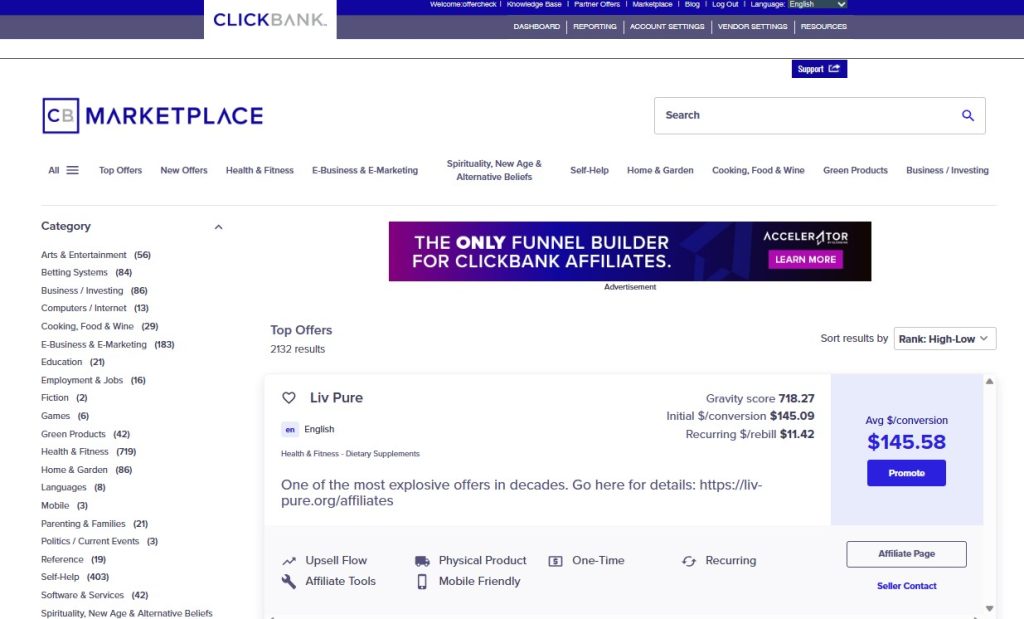
Effective SEO Strategies for Digital Marketing in 2025
Powerful Search Engine Optimization Techniques for Online Marketing in 2025

In the ever-evolving landscape of digital marketing, search engine optimization (SEO) remains a cornerstone for achieving sustainable online success. As we approach 2025, understanding and implementing effective SEO strategies is more critical than ever for businesses looking to enhance their online visibility and attract their target audience.
Understanding SEO and Its Importance
What is SEO?
SEO, or search engine optimization, is the process of optimizing a website to rank higher in search engine results pages, particularly in Google Search. An SEO strategy is a comprehensive plan to create content, optimize its structure, and promote it effectively to improve its ranking and visibility. This involves various SEO techniques, including keyword research to identify relevant search queries, on-page SEO to optimize content and meta descriptions, technical SEO to ensure website crawlability, and link building to establish authority. A solid SEO approach ensures that the right content reaches the right audience, driving organic traffic and boosting overall online marketing performance.
The Role of SEO in Digital Marketing
SEO plays a pivotal role in digital marketing by enhancing the visibility of a company’s marketing content and website in search engine results. This visibility is crucial for attracting potential customers who are actively searching for products or services related to the business. By focusing on tactics designed to improve search engine ranking, SEO complements other digital marketing strategies such as content marketing, social media marketing, and email marketing. Integrating SEO into the broader marketing plan ensures a cohesive and effective approach to reaching the target audience and achieving marketing goals.
Why Effective SEO Matters for Businesses
Effective SEO is essential for businesses because it significantly impacts their ability to be found online. Creating high-quality content with SEO best practices in mind enables a small business to stand out in search engine results and establish authority in its industry. Content marketing, combined with SEO, helps businesses attract organic traffic and reach a wider audience. By implementing effective SEO strategies, businesses can improve their online presence, increase website traffic, and ultimately drive conversions, making it a crucial aspect of their media strategy. This is why SEO continues to be a cornerstone of digital marketing efforts and a key to SEO success in 2025.
Key SEO Strategies for 2025

On-Page SEO Techniques
On-page SEO techniques are critical for ensuring content is easily understood and highly ranked by search engines. Several key elements contribute to this success, including:
- Internal linking, which involves linking from high-authority web pages to those needing more visibility, is a vital part of any digital marketing for small businesses.
- Creating short, keyword-rich URLs.
By focusing on these SEO best practices, digital marketers can optimize each page for better search engine results and improved website traffic.
Another vital on-page SEO technique is semantic SEO, which involves optimizing content around related keywords to enhance its relevance to search queries. Including related terms and phrases helps search engines understand the context of the content, boosting its chances of appearing in relevant search engine results. Other crucial elements to consider for SEO include:
- Optimizing the title tag so that it includes the primary keyword and is ideally between 14 and 17 words.
- Ensuring that each web page’s headings, subheadings, and meta description naturally include variations of the primary keyword.
Finally, an SEO-friendly URL is concise, relevantly descriptive, and includes targeted keywords, further boosting SEO success in the context of top SEO practices.
Off-Page SEO Techniques
Off-page SEO techniques are essential for building a website’s authority and improving its search engine ranking through activities conducted outside the website itself. One of the most popular forms of off-page SEO strategies is backlinking, which involves acquiring links from other reputable websites. Submitting your website to a reputable business directory or writing guest posts for niche-specific websites are a common link building practice. Backlinks serve as a signal to search engines that others recognize the value and quality of a site’s content, thereby giving it more authority. Digital marketing strategies that prioritize building authoritative backlinks contribute significantly to SEO success, improving visibility and driving organic traffic to the website. Creating high-quality content that others want to link to is fundamental to effective off-page SEO.
To effectively implement off-page SEO, a brand must focus on creating high-quality content that naturally attracts backlinks from other authoritative sites. This involves producing valuable resources, insightful articles, and engaging media that other websites find useful and want to share with their audience. Effective off-page SEO also includes social media marketing, which can indirectly contribute to building backlinks by increasing the visibility of the content and driving more traffic to the website. By combining content marketing with strategic link building, businesses can significantly enhance their off-page SEO and improve their overall SEO performance. These marketing efforts should align with the overall marketing plan to ensure cohesive digital marketing strategies.
Technical SEO Best Practices
Technical SEO best practices involve optimizing the infrastructure and technical aspects of a website to create an SEO-friendly architecture and improve its visibility in search engine results. This encompasses a range of elements, including the following:
- Sitemaps, which act as a blueprint of the website, guiding search engines to all important pages and ensuring that no valuable content is missed.
- Robots.txt files, which direct search engine crawlers to the appropriate sections of the site, keeping them away from duplicate content and sensitive areas, which is crucial for optimizing a website’s performance.
Structured data markup is another critical aspect of technical SEO, involving adding tags to the HTML of web pages to help Google provide detailed information about the content on each page. A schema provides a way to organize and interpret this information, with schema.org offering a standardized set of vocabularies and formats for web administrators. By implementing these technical SEO strategies, digital marketing teams can ensure that their websites are easily crawlable and understandable by search engines, leading to improved ranking and increased organic traffic. These techniques are particularly important for SEO strategy in 2025 as search engines continue to refine their algorithms and prioritize user experience. Making these adjustments helps with the overall marketing and SEO.
Content Marketing and SEO Integration

Creating High-Quality Content
In the realm of digital marketing, content marketing and SEO are inextricably linked. Creating high-quality content is crucial for SEO success, which involves producing materials that are not only relevant but also authoritative and trustworthy. Google’s E.E.A.T (Experience, Expertise, Authoritativeness, and Trustworthiness) guidelines underscore the importance of showcasing experience and expertise. Digital marketers should ensure that the content featured provides genuine value to users, thereby improving its ranking in search engine results, which is essential in today’s digital advertising landscape. This ensures that your digital marketing strategies will be effective.
Keyword Research Strategies
Effective keyword research strategies are fundamental to any solid SEO strategy. Identifying the right keywords ensures that content is aligned with search queries and can effectively reach the target audience. Using tools like Google Suggest, digital marketers can discover long-tail keywords that are less competitive and more specific to user intent. Understanding search volume and competition levels is crucial for optimizing content and improving SEO, making keyword research an integral part of SEO best practices.
Optimizing Content for Search Engines
Optimizing content for search engines requires a balanced approach, focusing on both SEO and user experience. While it’s essential to include target keywords and optimize meta descriptions and title tags for improved search engine results, the primary goal should be to provide high-quality content that meets user needs. By creating content that is both SEO-friendly and user-centric, businesses can drive organic traffic, improve their search engine ranking, and enhance their overall online visibility. Making these adjustments helps with the overall marketing and SEO.
Leveraging Social Media for SEO

Social Media Marketing Strategies
Social media marketing strategies play a significant role in driving traffic and enhancing SEO. Consistently posting engaging content and interacting with the audience on platforms like Facebook can boost brand visibility and attract potential customers. A strong call to action should be included in social media posts to guide users on what steps to take next, whether it’s visiting the website or making a purchase. This integrated approach aligns social media marketing with broader digital marketing strategies, contributing to SEO success.
Building Visibility through Social Platforms
Building visibility through social platforms can enhance search engine optimization by increasing brand recognition and driving traffic to your website. By creating original content and using relevant keywords, businesses can train Google to connect them with users searching for their product or service. This targeted approach ensures that the right audience finds the business, improving its search engine ranking and increasing organic traffic through effective marketing strategies.
Engagement and Organic Traffic
Engagement on social media platforms contributes to organic traffic and improved SEO, as social media helps with SEO and getting your company found via search. When users share and interact with your content on social media, it can indirectly influence search engine ranking and drive more visitors to your website, enhancing your digital advertising efforts. Prioritizing engagement, fostering a strong community, and consistently creating high-quality content, social media channels can be used to complement SEO and contribute to overall marketing and SEO.
Monitoring and Adjusting Your SEO Strategy
Measuring SEO Performance
Regularly monitoring your SEO performance is crucial for understanding the effectiveness of your SEO strategies. Keeping track of where your keywords rank in search engine results allows you to gauge how well your content aligns with user search queries and target audience interests. Tracking organic traffic flow to your site is vital to determine which keywords are working best for your online marketing. An increase in organic traffic typically signifies effective SEO, while a decline may indicate a need for SEO strategy revision, particularly when using keyword research tools. Google Analytics and Google Search Console provide detailed information about website traffic, including traffic sources, user behaviors, click-through rates, and indexing. These marketing tools help digital marketers fine-tune their SEO efforts and ensure their marketing plan aligns with their marketing goals.
Adapting to Search Engine Algorithm Changes
To maintain SEO success, it’s essential to stay informed about and adapt to search engine algorithm changes. These algorithms, like those used by Google Search, frequently change, influencing how websites are ranked in search engine results. Following industry news, updates from Google, and insights from SEO experts can help you understand these changes and adjust your SEO strategies accordingly. This adaptability is crucial for sustaining high rankings and ensuring organic traffic continues to flow to your site. Being proactive and informed helps prevent drastic drops in visibility and maintains the effectiveness of your digital marketing strategies, allowing you to effectively optimize for better search engine results.
Continuous Optimization for Better Rankings
Continuous optimization is the key to sustaining and improving your search engine ranking, and is vital for adapting to emerging marketing trends. Regularly updating your content, refining your keyword research, and improving user experience are essential components of a successful SEO starter approach. Ensure that all content provides real value to users, as high-quality content is favored by search engines and aligns with SEO best practices. By making ongoing improvements to your site, you can enhance your visibility and organic traffic. Keeping up with the latest SEO trends and SEO techniques ensures your website remains competitive in the ever-evolving world of search engine optimization. This contributes to overall marketing and SEO.
The Future of SEO and Digital Marketing
Emerging Trends in SEO
The future of SEO is shaped by emerging trends that digital marketers must embrace to stay competitive. Voice search optimization is gaining importance as more users rely on voice assistants. Artificial intelligence (AI) and machine learning are enhancing search engine algorithms, making it more critical to provide high-quality content that aligns with user intent. Focusing on semantic SEO, which involves understanding the context behind search queries, is also becoming increasingly important. By adapting to these trends, you can enhance your visibility and improve your search engine ranking in the future.
Impact of AI on SEO Strategies
Artificial intelligence (AI) is significantly impacting SEO strategies by enhancing how search engines understand and rank content. AI algorithms analyze vast amounts of data to provide more relevant search results. Keyword optimization now involves leveraging AI to identify semantic relationships between words and phrases, ensuring content aligns with user intent. AI-powered tools assist in content creation, suggesting topics and improving writing quality. Adapting to these AI-driven changes is crucial for maintaining effective SEO and enhancing organic traffic.
Preparing for SEO in a Mobile-First World
Preparing for SEO in a mobile-first world is crucial, with more than half of all Internet traffic coming from mobile devices, highlighting the importance of adapting digital marketing campaigns accordingly. Websites must be optimized for mobile SEO. This involves ensuring responsive design, fast loading times, and a seamless user experience on mobile devices. Prioritizing mobile SEO is essential for improving search engine ranking and capturing a larger share of the mobile audience. If your SEO marketing strategy does not take these mobile-first factors into account, your marketing efforts will struggle to take hold.
Frequently Asked Questions

What are SEO strategies for digital marketing?
SEO strategies for digital marketing involve a combination of techniques to optimize your website’s visibility on search engines. These include on-page SEO practices like using relevant keywords, improving user experience, and creating high-quality content, as well as off-page SEO techniques such as building backlinks and engaging in social media marketing to enhance your brand’s authority.
How can keyword research improve my digital marketing strategy?
Keyword research is essential for any effective digital marketing strategy as it helps identify the terms your target audience is searching for. By incorporating these keywords into your content, you can optimize your pages for search engines, improving your chances of ranking higher in search results and driving organic traffic to your website.
What is the importance of SEO in digital marketing?
The importance of SEO in digital marketing cannot be overstated. It enhances your website’s visibility on search engines, drives organic traffic, and ultimately contributes to marketing success. A solid SEO strategy ensures that your content reaches the right audience, increasing the likelihood of conversions and customer engagement.
What are some effective SEO techniques for content marketing?
Effective SEO techniques for content marketing include optimizing your content for relevant keywords, using engaging headings, and ensuring that your website is mobile-friendly, which is essential for a good digital marketing strategy. Additionally, incorporating internal links and external links back to your website can enhance credibility and improve your site’s ranking on search engines.
How does local SEO differ from general SEO strategies?
Local SEO focuses on optimizing your online presence to attract customers from specific geographic areas. It involves strategies like claiming your Google Business listing, optimizing for local keywords, and acquiring local backlinks. General SEO strategies, on the other hand, aim to improve visibility across broader search terms without geographic limitations.
What role does user experience play in SEO digital marketing?
User experience is a critical factor in SEO digital marketing. Search engines prioritize websites that offer a good user experience, which includes fast loading times, mobile optimization, and easy navigation. A positive user experience leads to lower bounce rates and higher engagement, which can improve your rankings in search results.
How can I measure the success of my SEO strategies?
Use marketing analytics tools to measure your SEO success. Track organic traffic, keyword rankings, and user engagement. These insights show how well your SEO is working. Use them to adjust your strategy and boost search engine visibility.
What are some common SEO examples for small businesses?
Common SEO examples for small businesses include optimizing their website with local keywords, creating high-quality blog content that addresses customer needs, and leveraging social media marketing to drive traffic. Additionally, ensuring that their Google Business listing is complete and accurate can significantly enhance local visibility.








